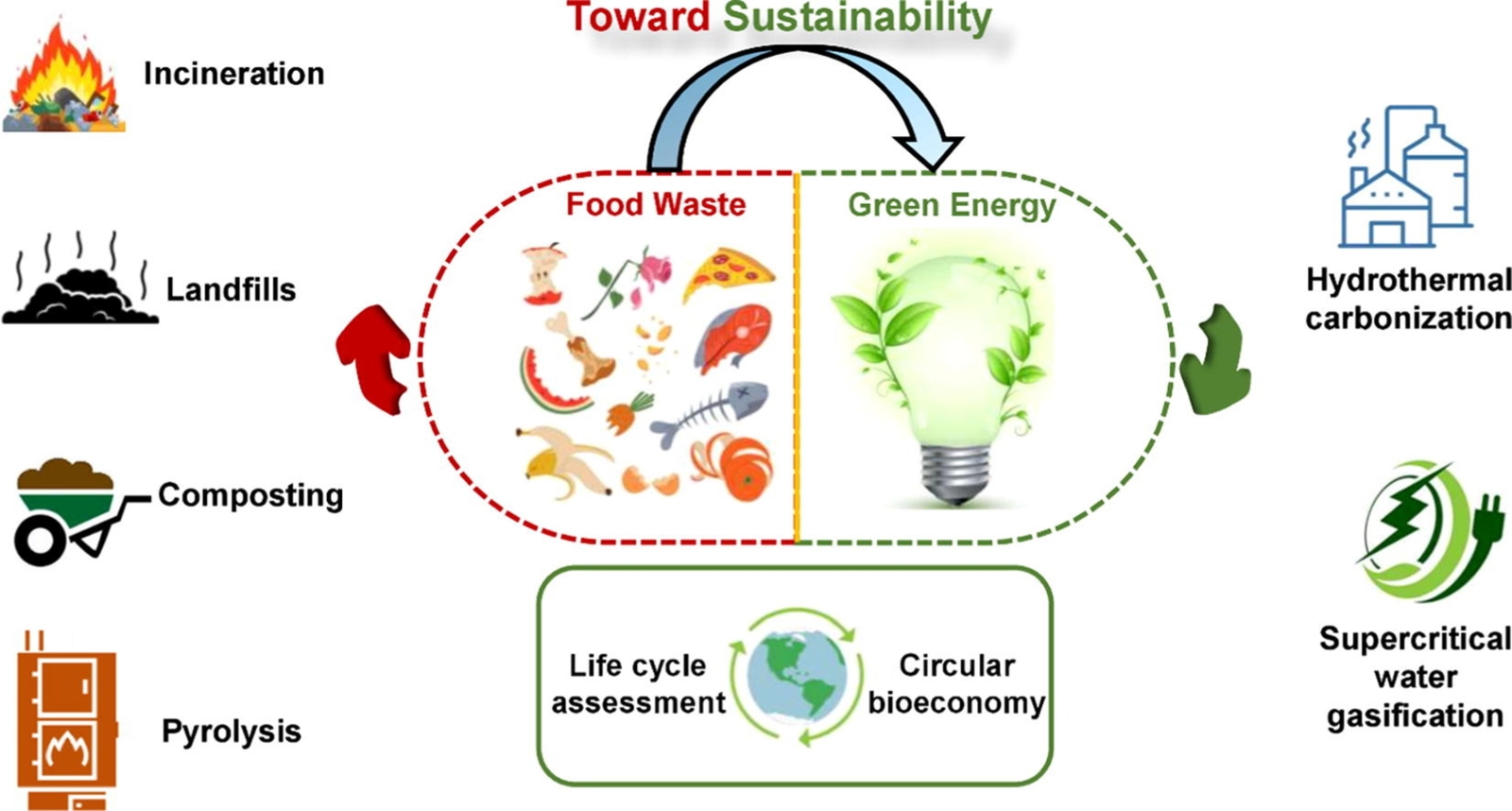October 15, 2021 | Fuel | Source |
Introduction: A research team from SRM Institute of Science and Technology and Sri Sivasubramaniya Nadar College of Engineering in India reviews sustainable pathways for converting food waste into energy. With global food losses exceeding 931 million tons annually and projected to reach 2.2 billion tons, turning this untapped resource into renewable energy is urgent, as conventional disposal methods like burning or landfilling waste resources and cause severe pollution. The study evaluates both established technologies (incineration, landfills, composting, anaerobic digestion, pyrolysis, biochemical conversion) and emerging options like hydrothermal carbonization (HTC) and supercritical water gasification (SCWG). Assessments draw on life cycle analysis (LCA), multi-objective optimization, and circular bio-economy concepts, with attention to safety and future directions for sustainable development.
Key findings: Traditional options like incineration and landfills allow quick disposal but emit GHGs, leachates, and toxic byproducts. Biological methods are more sustainable as composting recovers heat and nutrients, while anaerobic digestion can generate up to 0.81 L/g biogas yield in two-stage digesters. Thermochemical routes such as pyrolysis produce biochar and bio-oil, and biochemical conversion yields ethanol, though it is capital intensive and purification remains costly. Advanced methods show greater promise: HTC raised calorific values of food residues from 25.1 to 33.1 MJ/kg, and SCWG achieved hydrogen yields above 8 mol/kg with catalysts.
LCA, multi-objective optimization, and circular bio-economy models confirm that optimized pathways outperform landfill and incineration in reducing emissions and enhancing resource recovery. Still, barriers persist: HTC faces scale-up challenges in pump and reactor design, while SCWG must address corrosion and reaction uncertainties. More broadly, high capital costs, process instabilities, and weak policy frameworks limit deployment. Future directions include applying machine learning for process optimization, advancing nutrient recovery, and integrating circular bio-economy models to valorize waste into fuels, fertilizers, and bioproducts. Sustainable solutions will require combining advanced technologies with supportive governance and robust safety standards.
Graphical abstract






